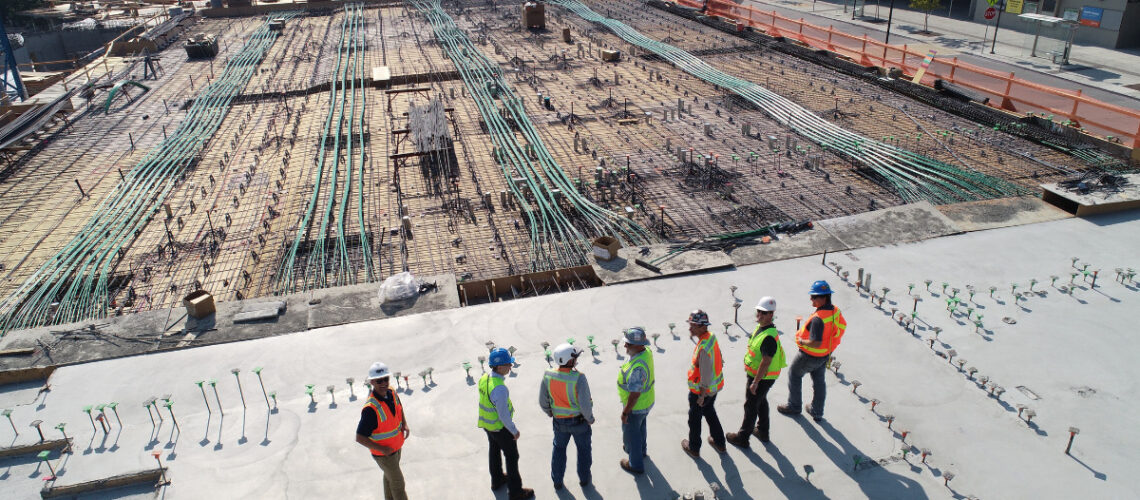In the dynamic field of construction, the ability to balance and lead high-performance teams is vital for the success of any project. With the industry evolving, particularly with the integration of sustainable practices, the need for effective team management has become more pronounced. Professionals like Jason Harvey, Atlanta have set benchmarks in leading construction teams, ensuring that projects are not only completed efficiently but also sustainably.
The Foundation of High-Performance Teams
The success of construction projects largely hinges on the performance of the teams involved. High-performance teams are characterized by their ability to work collaboratively towards common goals, exhibiting high levels of productivity, creativity, and problem-solving skills. Building such teams requires a deliberate approach, starting with the selection of team members with diverse yet complementary skills and expertise.
Fostering Teamwork and Collaboration
Creating an environment that fosters teamwork is essential. This involves encouraging open communication, promoting mutual respect, and ensuring all team members are aligned with the project’s goals and values. Effective leaders recognize the importance of making each team member feel valued and heard, creating a sense of belonging and commitment to the project.
Communication: The Key to Effective Team Management
Effective communication is the backbone of managing high-performance teams in construction. Clear, concise, and continuous communication helps in setting expectations, providing feedback, and ensuring that everyone is on the same page.
Implementing Effective Communication Strategies
Leaders should establish regular check-ins and meetings to facilitate open dialogue. Leveraging technology for better communication, especially in large or geographically dispersed teams, can significantly enhance coordination and information sharing.
Productivity in High-Performance Teams
Productivity is a critical measure of a team’s performance. In construction management, it involves not just completing tasks but doing so efficiently, safely, and to the highest quality standards.
Techniques to Enhance Productivity
To boost productivity, leaders like Jason Harvey, Atlanta focus on setting clear, achievable goals and providing the resources and support needed to achieve them. This includes implementing efficient work processes, providing the necessary tools and equipment, and fostering a positive work environment that motivates team members.
Integrating Sustainable Practices
With the growing emphasis on sustainability in construction, managing teams also involves integrating sustainable practices into every project phase. This requires a comprehensive understanding of sustainable construction methods and the ability to impart this knowledge to the team.
Leading by Example in Sustainable Construction
Leaders must not only be knowledgeable about sustainable practices but also demonstrate their commitment to these practices. This involves making decisions that prioritize sustainability and ensuring that the team understands the importance of these practices in their work.
Overcoming Challenges in Team Management
Managing high-performance teams in construction comes with its set of challenges, such as dealing with diverse personalities, managing conflicts, and ensuring team cohesion.
Strategies for Overcoming Challenges
Effective conflict resolution, active listening, and empathy are key skills for overcoming these challenges. Leaders must be adept at identifying and addressing issues that may hinder team performance, ensuring that the team remains focused and cohesive.
The Role of Continuous Learning and Development
The construction industry is constantly evolving, and so are the skills required to be successful in it. Continuous learning and professional development are essential for keeping teams up-to-date with the latest trends, technologies, and practices.
Encouraging Ongoing Education and Training
Leaders should encourage and facilitate ongoing education and training for their teams. This not only enhances the team’s overall skill set but also keeps them engaged and motivated. In Atlanta, Jason Harvey has been known to advocate for continuous learning, recognizing its impact on team performance and project success.
Empowering Teams for Success
Empowering team members by delegating responsibilities and providing opportunities for leadership and decision-making can lead to higher levels of team performance and job satisfaction.
Building Trust and Autonomy
By trusting team members with responsibilities and allowing them autonomy in their roles, leaders can foster a sense of ownership and accountability within the team. This empowerment leads to more innovative and effective solutions in construction projects.
Balancing high-performance teams in construction management is a multifaceted task, requiring a combination of effective communication, teamwork, productivity enhancement, and continuous learning. Leaders like Jason Harvey, Atlanta exemplify the successful integration of these elements, leading teams that not only achieve their goals but also push the boundaries of what is possible in sustainable construction. As the industry continues to evolve, the ability to lead and balance high-performance teams will remain a key determinant of success in construction management.

